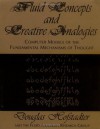251
Followers
4
Following
Manny Rayner's book reviews
I love reviewing books - have been doing it at Goodreads, but considering moving here.
Currently reading
The Greatest Show On Earth: The Evidence For Evolution
R in Action
Fluid Concepts and Creative Analogies
McGee on Food and Cooking: An Encyclopedia of Kitchen Science, History and Culture
Epistemic Dimensions of Personhood
Pattern Recognition and Machine Learning (Information Science and Statistics)
Relativity, Thermodynamics and Cosmology
The Cambridge Handbook of Second Language Acquisition
Kramnik Life My Life and Games
 [Original review, written January 2009]
[Original review, written January 2009]The only chessplayers that anyone's heard of, if they aren't themselves a chessplayer, are Bobby Fischer and Garry Kasparov. Vladimir Kramnik's claim to fame is that he's the only human being who has ever won a match against Kasparov - Kasparov of course also lost the famous match against IBM's Deep Blue in 1997. There aren't likely to be any more, since Kasparov has now retired from chess, and spends most of his time on Russian politics.
The story of how Kramnik won the 2001 match is in fact quite interesting. He used to be a very dynamic, intuitive player, and this book gives many examples of what his play was like when he was the young lion of the Russian chess world. He's also a deep and uncompromising analyst. When he got his chance to play Kasparov for the title, he took a good look at his own play, and decided that he would never beat Kasparov on brilliance and intuition, which are Kasparov's home territory. Instead, he spent over a year carefully refashioning his own style so that it was as dry and technical as possible. Taken by surprise, Kasparov was completely at sea in the resultant positions, and Kramnik won the match two games to zero, with 13 draws.
So Kramnik became the world champion... but he was never able to get back his "real" style, and is still mostly a dull, technical player. Though every now and then you see a tantalizing flash of the old Kramnik. Maybe someone will write an opera about it one day.
__________________________________________
[Update, January 2012]
Well, I was wrong, but most of world's other chess players were too. Kramnik's done it again: he's somehow managed to turn himself back into a dynamic, intuitive player. We watched him playing in the recent Supergrandmaster tournament in London, and his games were once more full of daring attacks and bold strategic decisions. During the post-game analysis session, he amazed the public with lightning-fast analysis. He'd rattle off a sequence of fifteen moves, then grunt "Well, I couldn't make this work, so I did the other thing instead." His opponent, a strong Grandmaster, was shaking his head and saying modestly that he'd seen maybe one percent of that.
The more I think about it, the more impressive it becomes. Becoming the opposite of your true self to defeat one of the two greatest players of all time, then reversing the change once you've succeeded. A unique achievement.
__________________________________________
[Update, June 2013]

I had the pleasure of meeting Kramnik in person for the first time when Not and I were doing the web commentary at the Geneva Chess Masters this week. He isn't just one of the greatest chessplayers of all time, he's also a really nice guy. We were so disappointed when he lost the final match against Mamedyarov.











